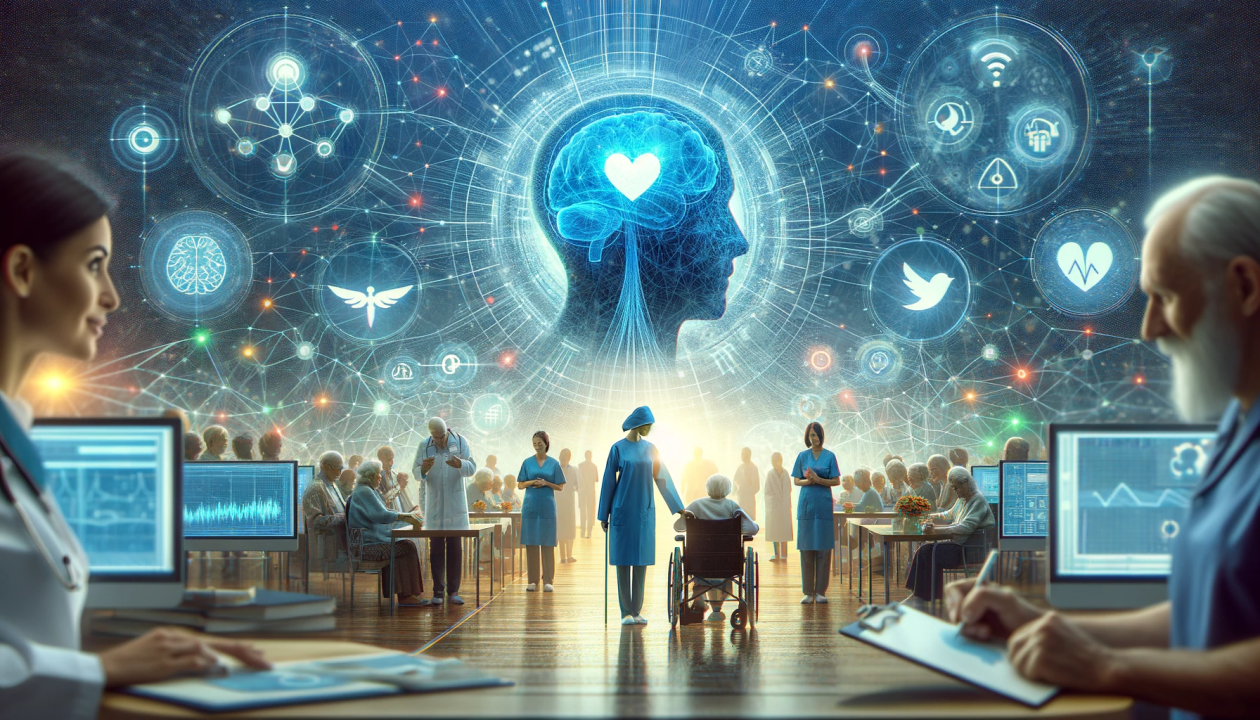Can AI make life easier for people with dementia?

Pete Middleton, who lives in Northamptonshire, UK with his wife, has long been an early adopter of technology.
He became interested in computing while in the Royal Air Force in the 1980s and went on to learn several programming languages.
In recent years he’s been enthusiastic about the rise of AI, which he uses for creating artwork and conducting research, for instance.
Overall, Mr Middleton is having a busy retirement. In addition to his hobbies and his dementia blog, he’s a lived-experience consultant, committee member and volunteer with Alzheimer’s Society.
Since his diagnosis with dementia five years ago, at the age of 65, he’s noticed changes to his short-term memory. For example, “I can still write apps for mobile phones, but I can’t remember where I put my telephone.”
Mr Middleton believes that AI could help to bridge this gap.
"If people incorporate the benefits of using AI into their lives, it will be good for their self-respect and self-esteem, and it will keep them independent for longer. And if it does that, it keeps them out of the NHS system and out of care homes.”
Several AI-based tools offer to help with the daily routines of people living with dementia.
One is Simon, an app that uses geo-tracking and machine learning to determine a user's specific needs and provide notifications that could help.
“For example, this could include reminding individuals of a PIN when the app detects they are at the bank,” says Fiona Carragher, the director of research and influencing at Alzheimer’s Society. Simon is currently being beta tested.
A long-running program in this domain is the Florence Project, which seeks to develop useful communication technologies for people living with dementia.
“We’re looking at this issue of keeping communication strong – so, not replacing communication between family and carers and people living with dementia, but rather supporting it,” says Janet Wiles, a professor in human-centred computing at Australia’s University of Queensland.
Prof Wiles, whose mother has dementia, is part of a team working on the Florence Project.
The team is keen to avoid their products ending up in a drawer of unused, overly complicated devices.
So, it includes a Living Experience Expert Panel, made up of people living with dementia and those who help care for them.
The project has developed three devices – a diary, a music player, and a digital photo screen. These are easy-to-use, single-function devices with physical elements like knobs or buttons, which also integrate the preferences of the living experience experts.
The content on the devices can be adjusted either locally or remotely. For instance, a relative in another part of the country can update the playlist on the music player, if the person living with dementia gives permission.
AI helps with personalizing these tools. A knowledge bank is built for each person, based on questions they answer or conversations they have. Audio is transcribed and in some cases translated, before feeding into the kinds of information that are made available on the devices.
For example, the diary device might display the photo of a new part-time carer next to the time that they will arrive.
Needs and preferences may change as their condition does. So, for example, the information in the diary can be simplified to match the needs of the user.
The team was keen not to rush the development process - the project has been running for about a decade already and is now at the stage of testing its prototypes.
"The downside for tech that goes wrong for people with dementia is often way worse than it would be for other people,” Prof Wiles cautions.
She emphasizes that data privacy and security are especially important for people with dementia.





